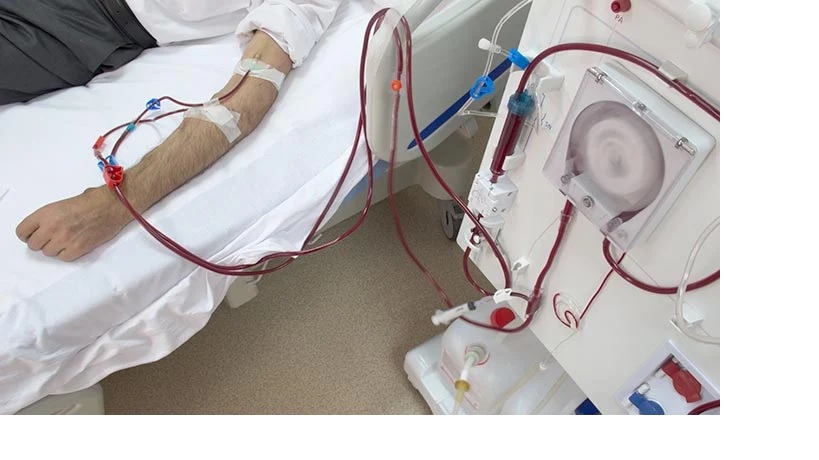Dialysis is a procedure to remove waste products and excess fluid from the blood when the kidneys stop working properly. It often involves diverting blood to a machine to be cleaned.
Dialysis is a type of treatment that helps your body remove extra fluid and waste products from your blood when the kidneys are not able to. Dialysis was first used successfully in the 1940's and became a standard treatment for kidney failure starting in the 1970s. Since then, millions of patients have been helped by these treatments.
Dialysis can be done in a hospital, a dialysis center, or at home. You and your doctor will decide which type of dialysis and which place is best, based on your medical condition and your wishes.
When you have kidney failure, your kidneys don’t filter blood the way they should. As a result, wastes and toxins build up in your bloodstream. Dialysis does the work of your kidneys, removing waste products and excess fluid from the blood.

This treatment should maintain or improve your quality of life. But you can choose not to have it or stop at any time. If you do, make sure to talk to your doctor about other treatments that can help you. Changes to your diet or lifestyle may improve your quality of life.
If you want to stop dialysis because you feel depressed or ashamed, your doctor may urge you to speak to a counselor first. Sharing your feelings, taking antidepressants, or doing both of these things may help you make a more informed decision.
Dialysis is not for everyone, particularly for the very elderly and those with very severe medical conditions.